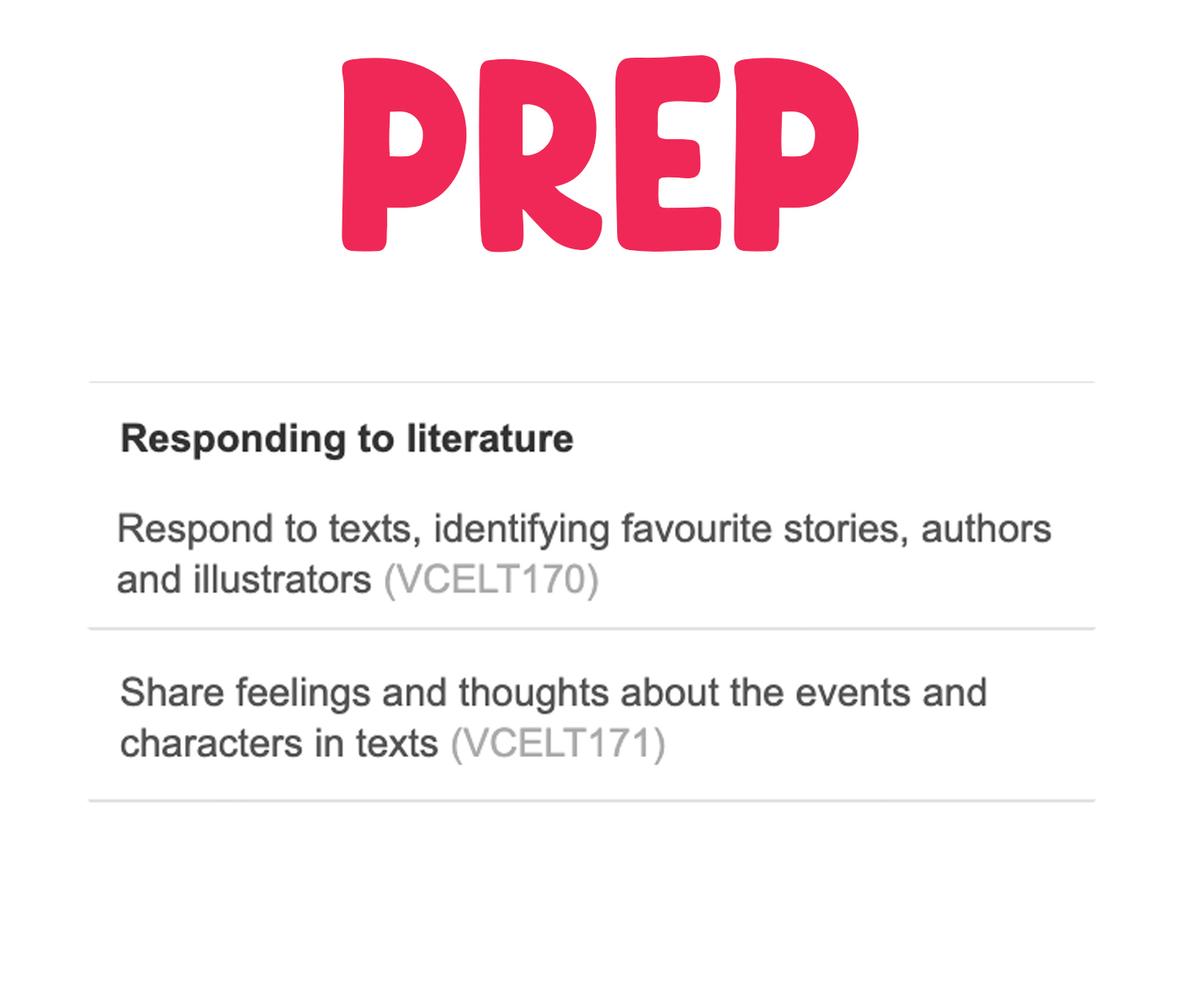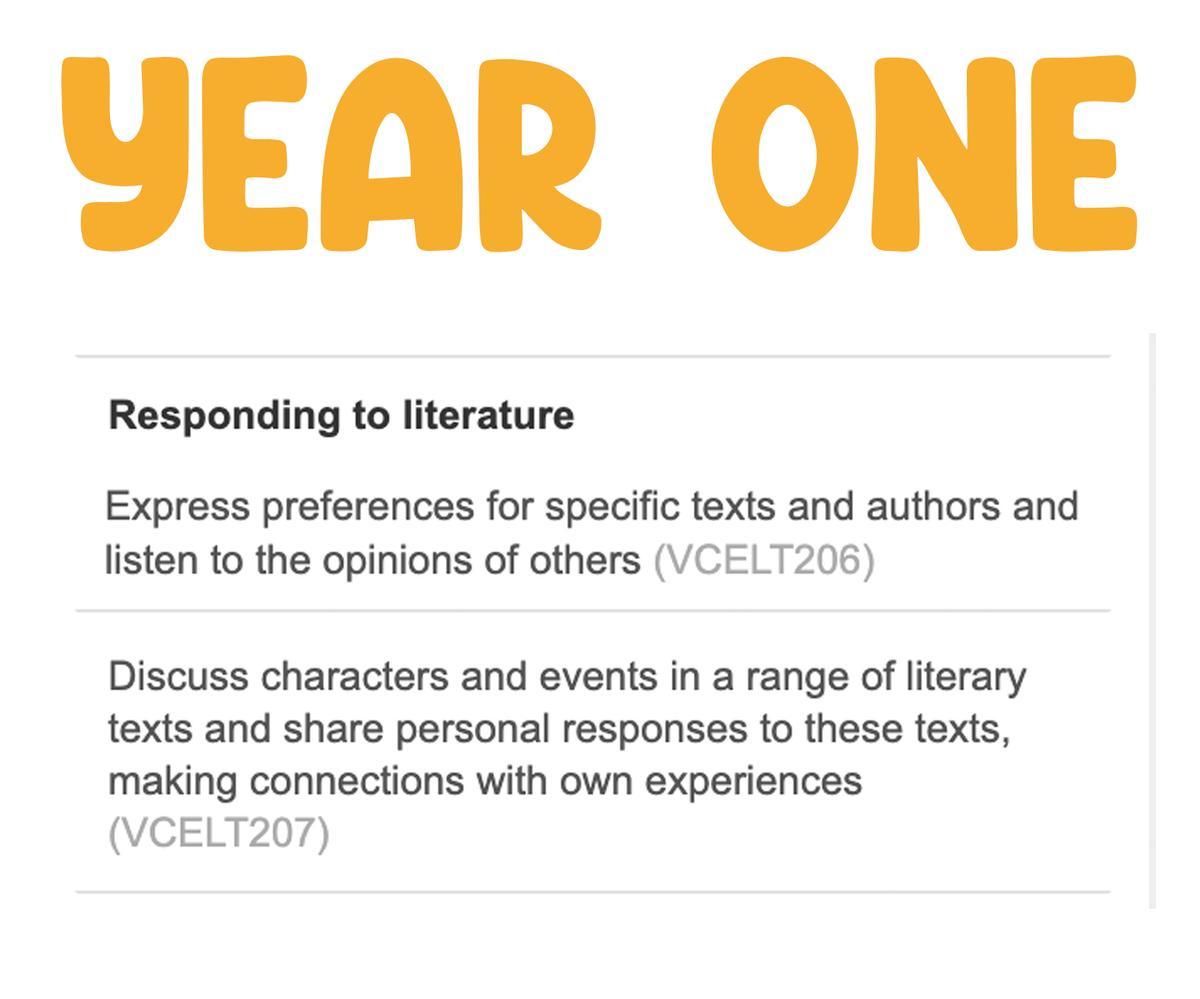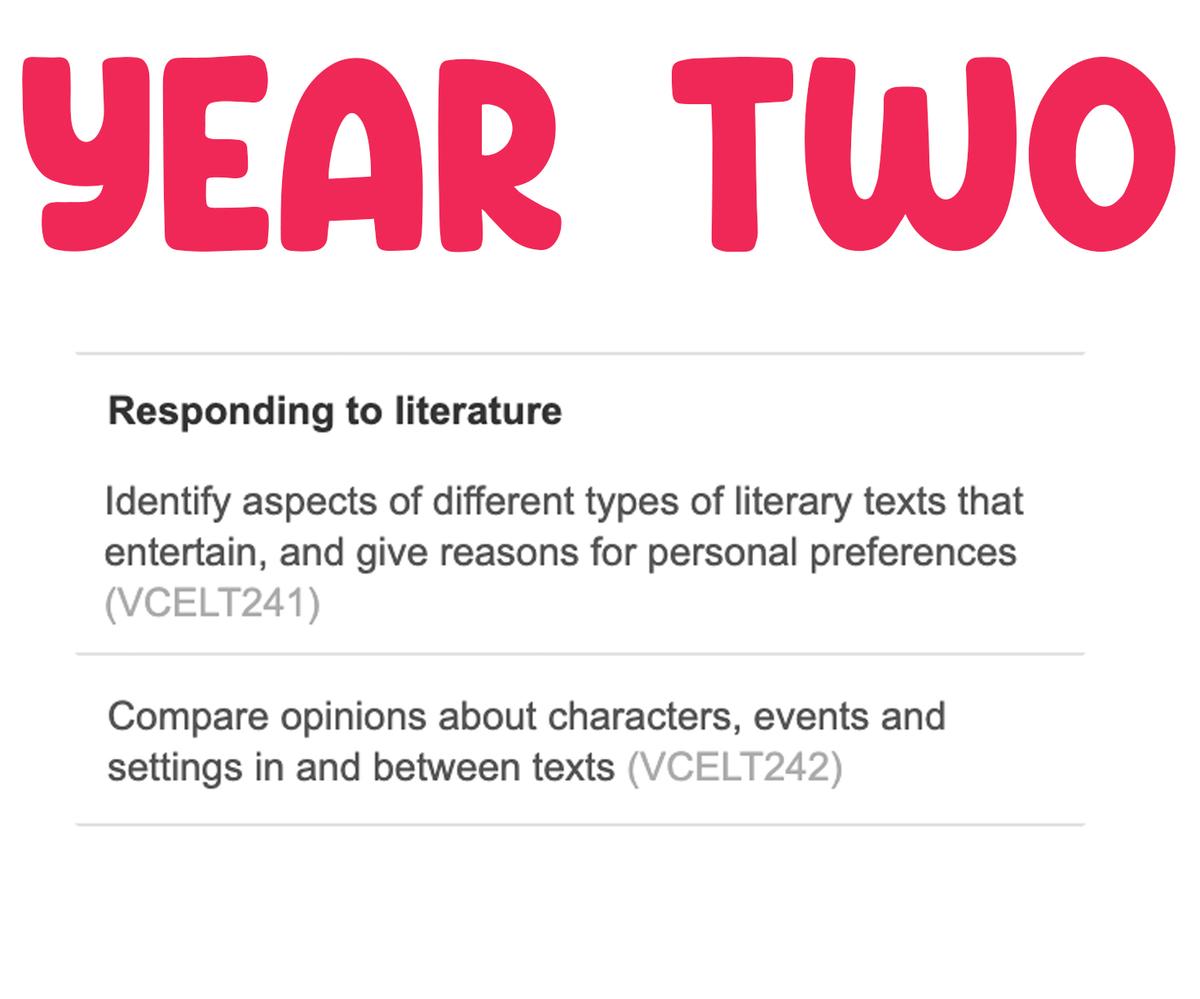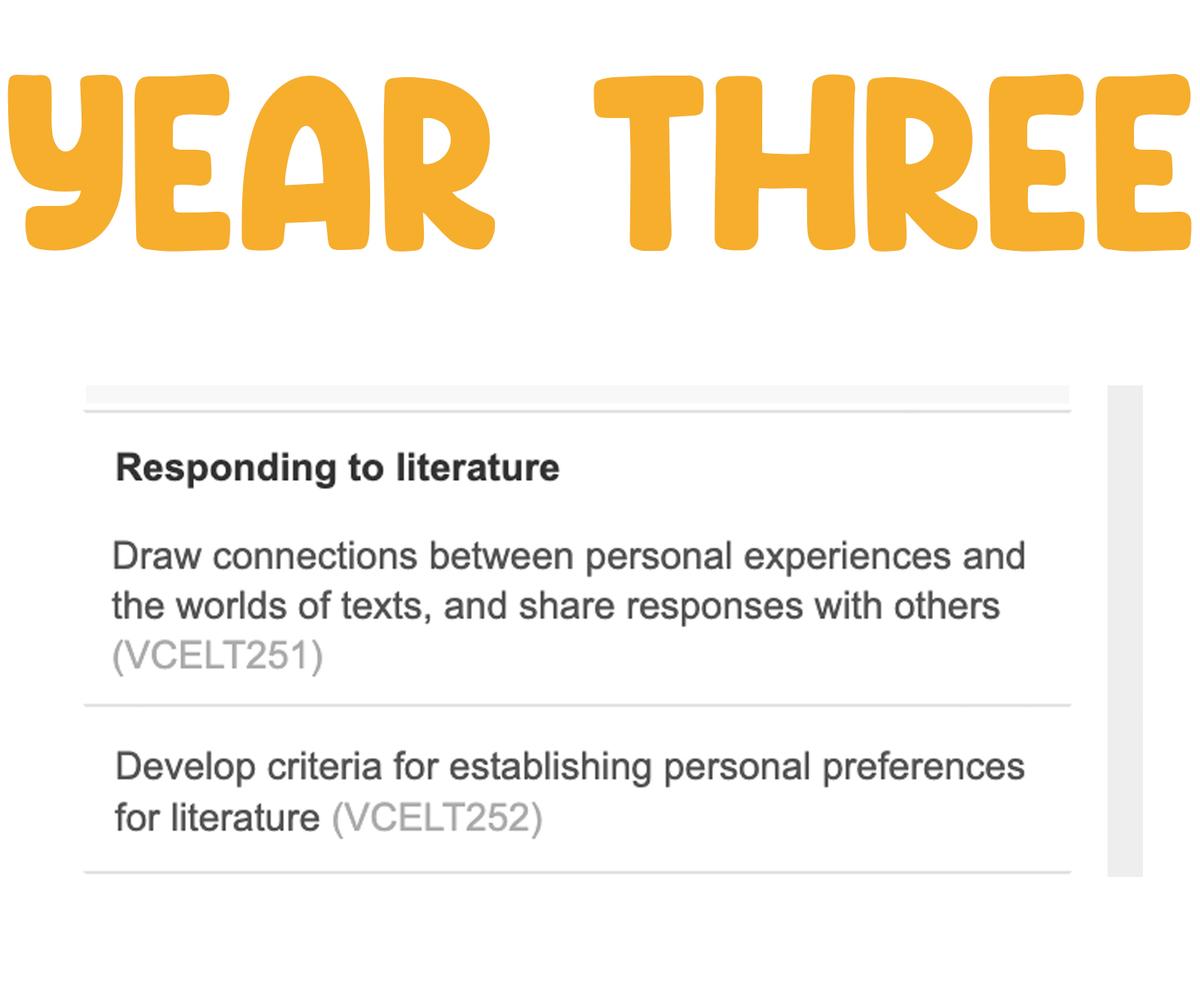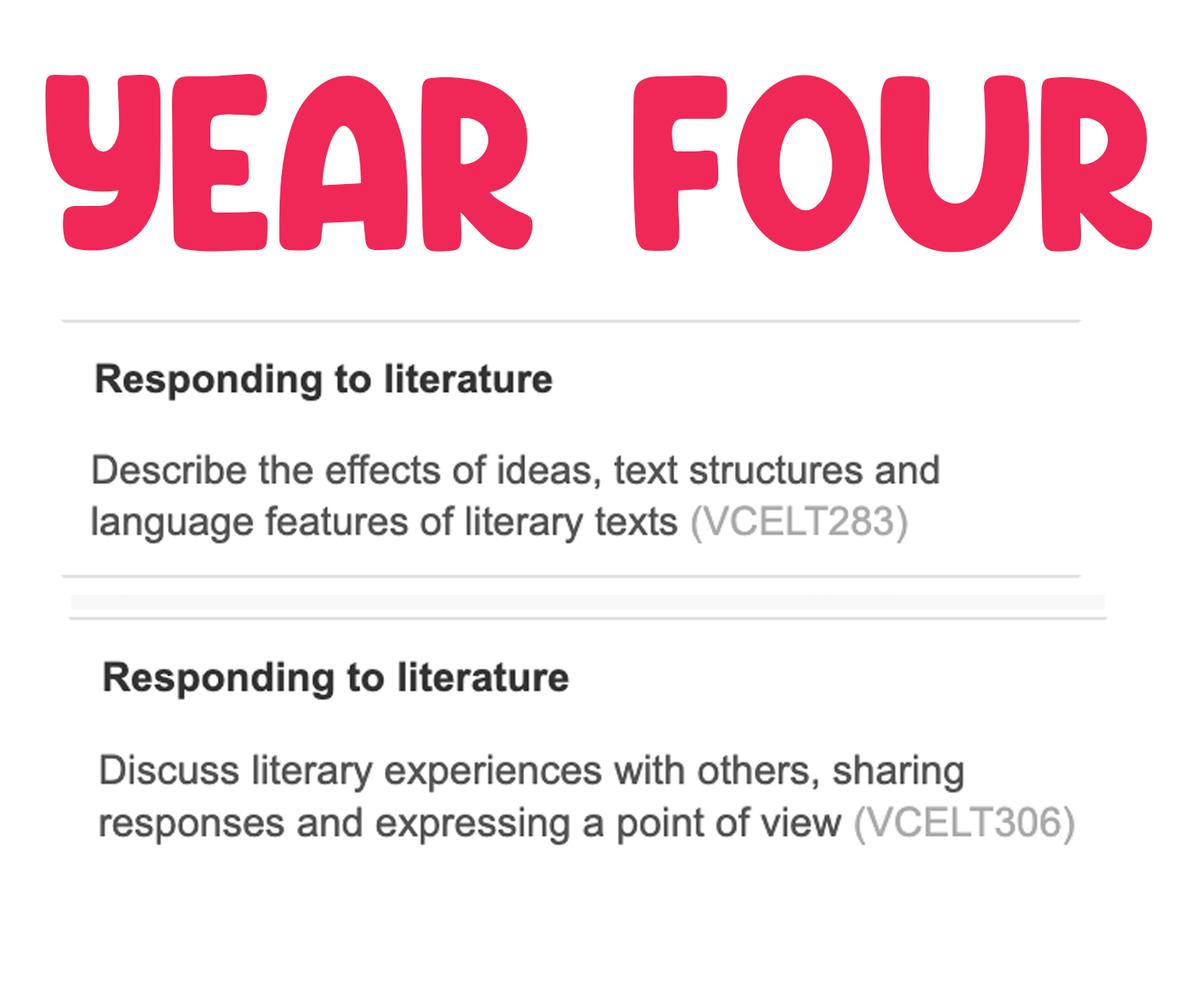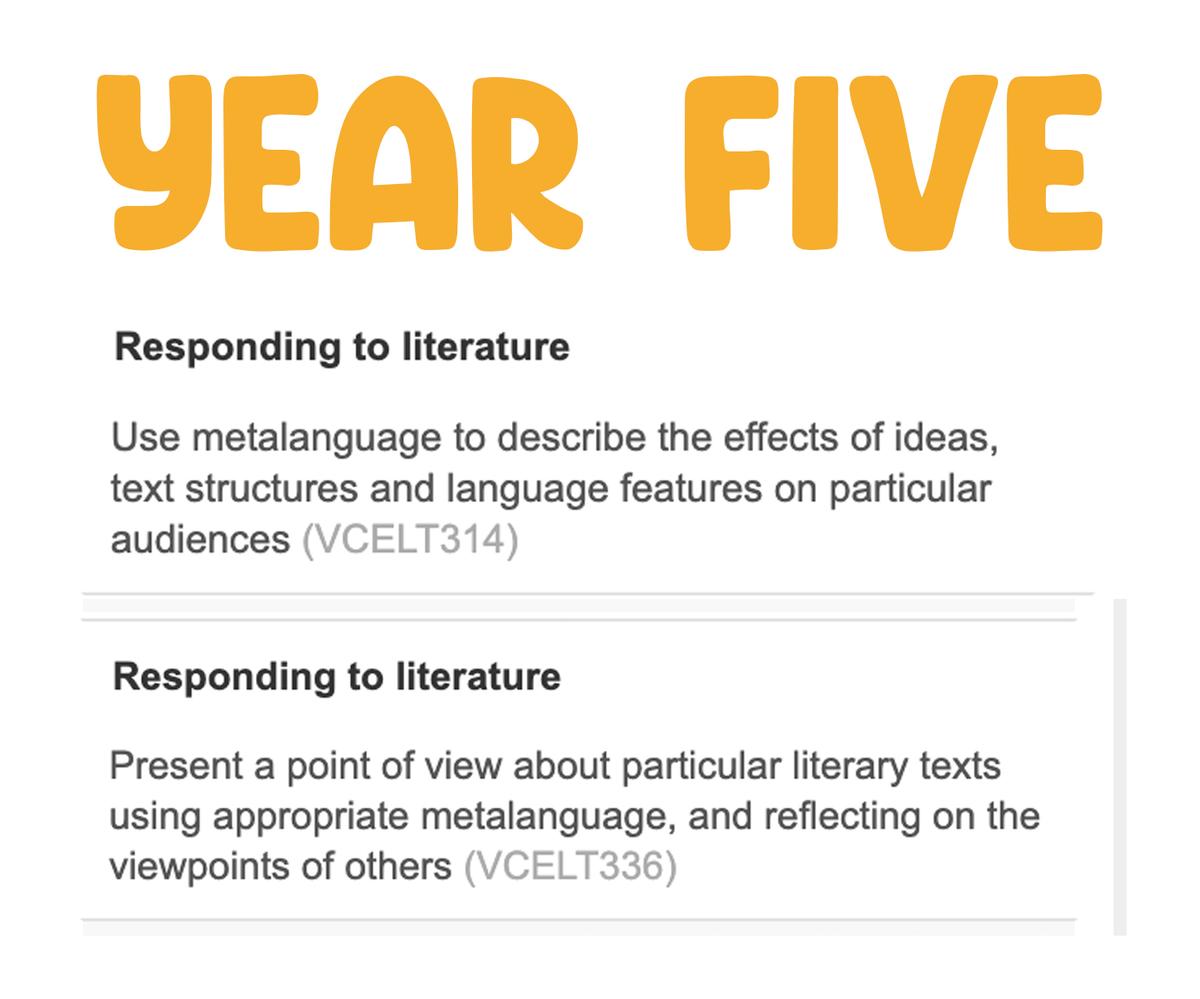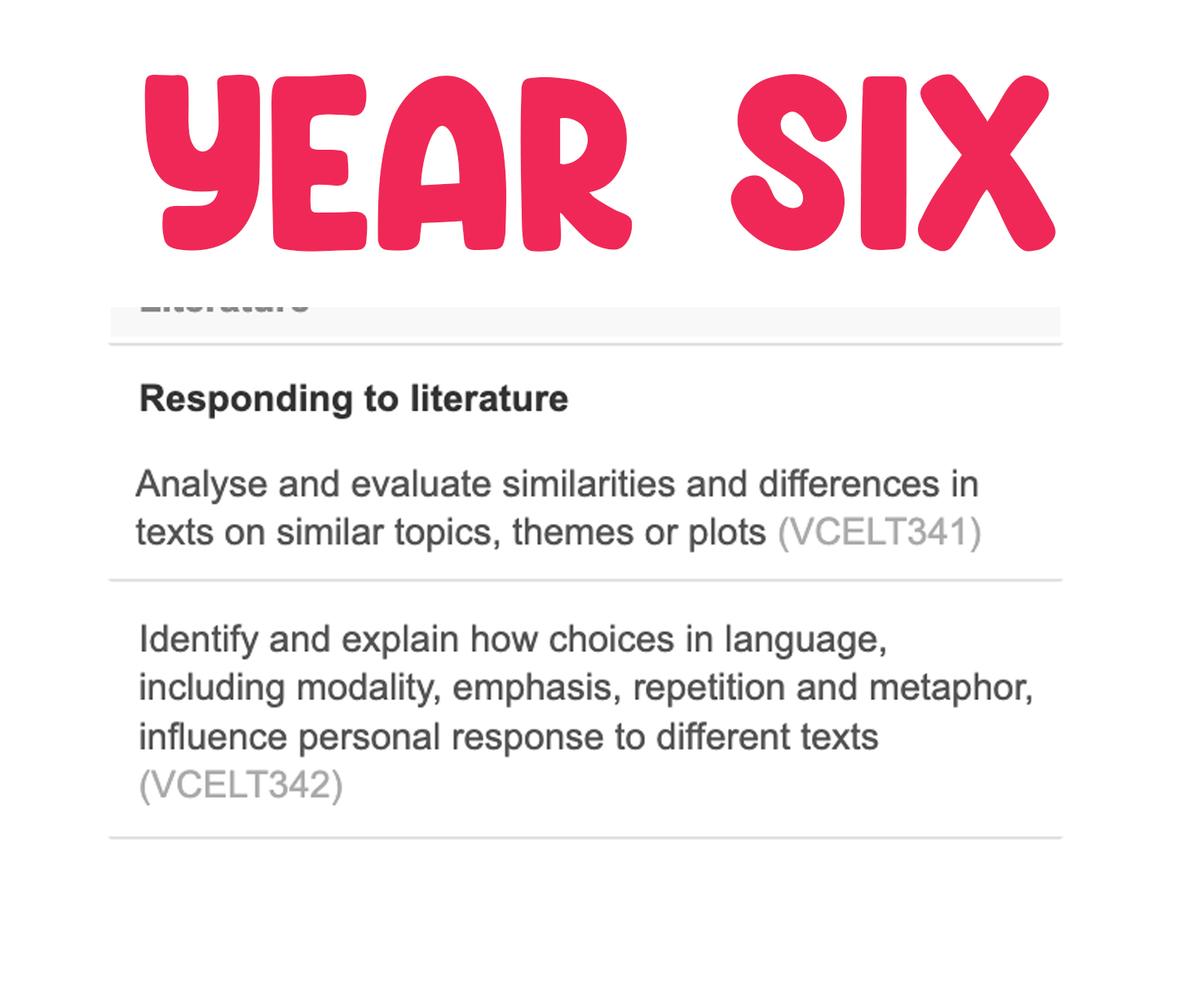English
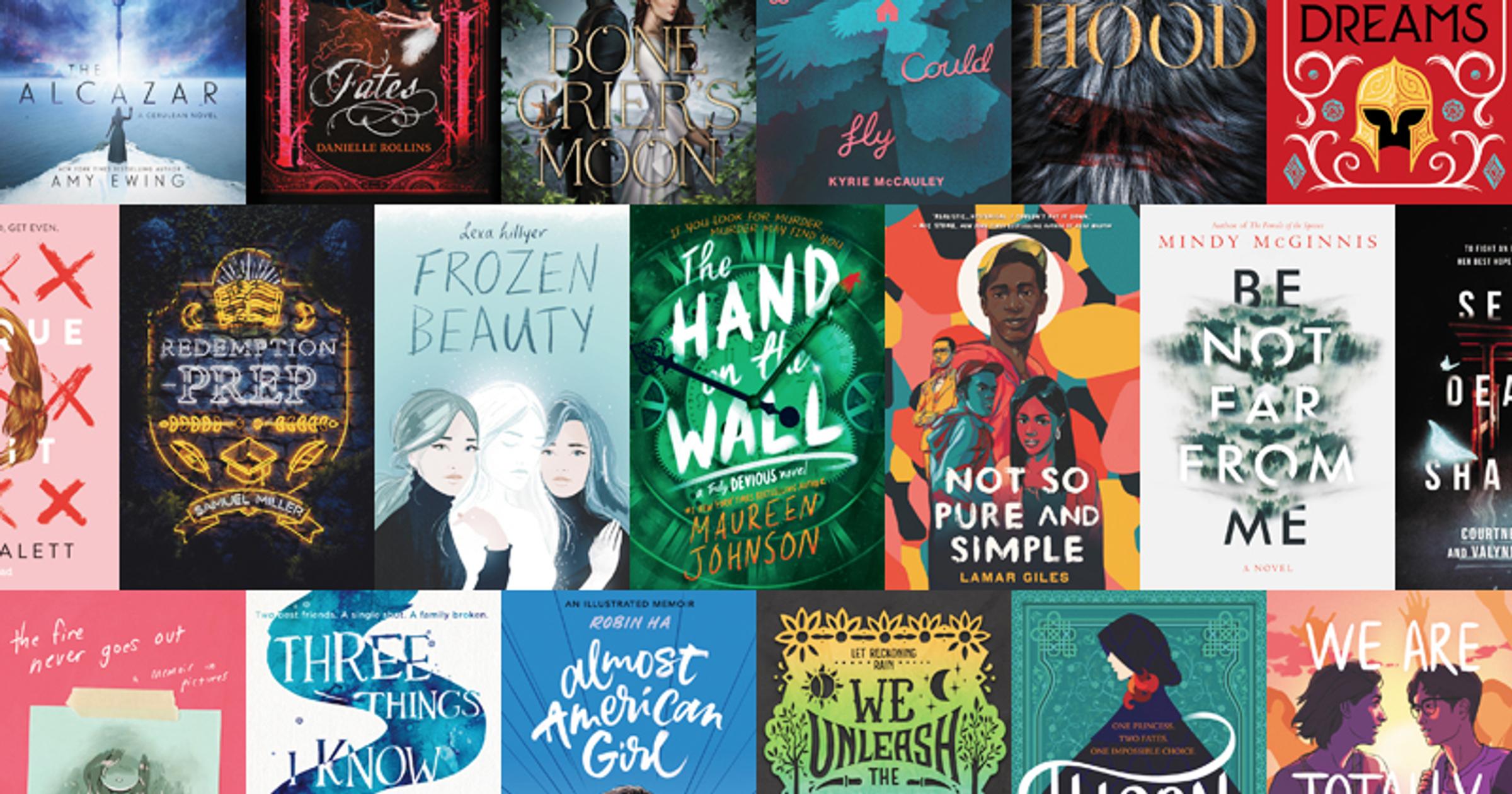
Don't Judge a Book by its cover!
This is of course the famous saying, however, I have to admit that's exactly how I pick books from the store or library! Who doesn't love a bright or intriguing book cover!
However, the meaning of the saying relates to the content of a book, and how the words on the page make us react, think and feel. Responding to Literature is an extremely important aspect of the Victorian Curriculum, all the way through a student's school journey. It is unpacked in different, age appropriate, ways but is a constant and something you would see in each and every single one of our classrooms.
In today's newsletter I thought it would be interesting to unpack what that looks like for each of the levels here at St Anthony's.
In Prep this usually relates to picture story books, which include many nice big visuals to help students who are still developing their reading skills to tell what is happening in the story. This is found in the Speaking and Listening section of the curriculum, meaning our Prep students will be speaking together as a class and telling their teacher and peers what they see on a page. This also includes repeating stories for the students benefit, where we might hear our children say 'Oh I love this story!'
In Year One these skills are still found in the Speaking and Listening section of the curriculum, where students are encouraged to share their thoughts aloud. In this part of the curriculum students are encouraged to begin making connections to their own experiences. For example, if a picture story book takes part in a park a teacher might ask their class, 'When was the last time you went to the park? Do you have a park you love?'
In Year Two students continue to be encouraged to share their ideas out loud about what they are reading. This includes more complex questions about the characters and events in a text. Questions might include things like, 'Would you like this if it happened to you? Do you think the place where the story takes place is nice?' Last year when learning all about Alice in Wonderland, I'm sure many students would have stated how crazy Wonderland would be to live in!
An interesting change takes part in Year Three, where the responding to literature skills are moved to the Reading section of the curriculum. This means that in Year Three students begin to express themselves about texts in other avenues to class discussion, such as in small groups, partners or importantly written down in their book. Students are encouraged to continue to make connections to their own experiences when they read. In Year Three students begin to explain the type of texts they like in more detail, including providing reasons. For example, 'I love the Specky Magee books because I love footy!' or 'The Weirdo books are my favourite because they make me laugh!'
As expected the response to literature gets more complex as students progress through year levels. In Year Four students are asked to share their opinion with others and also consider the opinions of their peers and how this makes them feel. Students begin to unpack author choice, including the structure of a text. For example, 'I love this book because it has short chapters, and at the end of each chapter something exciting seems to happen!'
Again more complex responses are encouraged and expected of our senior school students. Students begin to discuss particular language techniques such as adjectives, alliteration, vocabulary and more. For example, 'Paul Jennings is my favourite author, because he uses metaphors to describe things in a funny way.' Listening to the point of view of others becomes even more important through discussion, as students further develop their understanding that the texts they love might not be another students favourite!
Connections are vital in Year Six and are extend to different types of texts. Students continue to apply events and themes of texts to their own memories and further develop this skill by comparing two or more texts. For example, 'In the novel Holes the main character goes to a prison camp; this reminds me of Harry Potter where sometimes Wizards get arrested too!' or 'The Characters in the Maze Runner are very brave like the superheroes in the Avengers movies.'
Students in senior school are asked to express these connections and opinions both aloud during discussion but also in written form.
The Victorian Curriculum is a comprehensive document that all teachers use, however, it builds in a way which makes sense for students as skills progressively get a little bit more challenging as students get older.
We look forward to another term of reading texts of different types and discussing and writing about how they make us feel and think!
Happy Reading!
Tim O'Mahoney
English Leader

